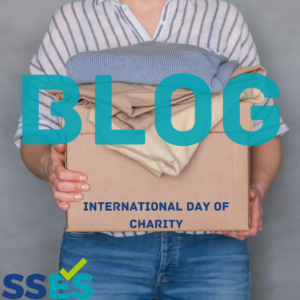Today, 5th September, is the United Nations International Day of Charity.
‘The International Day of Charity was established with the objective of sensitising and mobilising people, NGOs, and stakeholders all around the world to help others through volunteer and philanthropic activities.’ Taken from the United Nations website here
Since we have started to blog more regularly – over a year now – we have ensured that our posts are not all about our End Point Assessment Organisation. One area we have encouraged is thinking about others, and recent posts have included World Refugee Day and Empathy Day.
With a sector specific EPAO, all based around the early years, children and young people, we are working with employers whose ‘clients’ are the next generation. Therefore, we must be careful what we teach them.
There is always so much emphasis on mathematics and literacy, SATs, GCSEs etc. But if you speak to anybody that teaches, or cares, or supports children and young people, and ask what they consider important, although an education is important, their thoughts may include:
- To be kind
- To learn how to share
- To think others
- Respect
- Compassion
These are just a few suggestions, but, as can be seen, educators/carers etc put as much emphasise on a child’s behaviour towards others. Some skills can be taught daily in the settings, for example sharing. There is ample opportunity to learn about sharing – when using play equipment, when passing round snacks at snack time or when playing a game in a group. Other skills to learn are not always as easy, which is where days to mark events are important. These days can introduce children and young people to situations that they may never experience in their lives. It is possible in rural areas to not meet another child with special needs, and highly unlikely they would meet a refugee family. Equally, children from affluent areas may not consider other children in England having not enough food, heating, or shoes worn through.
Our role as carers/educators/practitioners is one of nurture and one of the most important roles, when you think we are responsible for the next generation.


